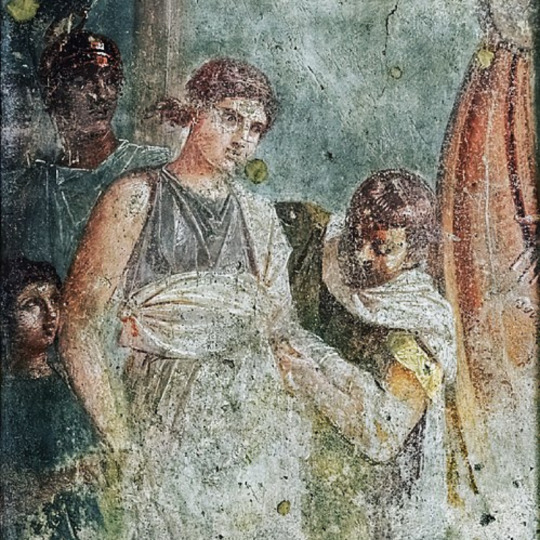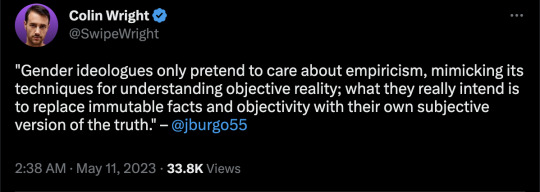#helen deutsch
Text
https://youtu.be/Catbx9i9np4
youtube
Gorgeous phrasing of this song.
1 note
·
View note
Text















women in art: helen of troy
#artist is evelyn de morgan#artist is gustave moreau#artist is gaston bussiere#artist is frederick augustus sandys-walker#artist is guido reni#unknown artist#artist is jacques-louis david#artist is howard david johnson#artist is enrico fanfani#artist is edward john poynter#dont know the artist#artist is rudolf friedrich von deutsch#artist is dante gabriel rossetti#artist is johann heinrich wihelm tischbein#artist is luca ferrari#art history#greek mythology#helen of troy#trojan war#art#ancient greece
576 notes
·
View notes
Text
Du erklärtest mir die Welt und die Schatten an der Wand
Damit ich gut schlafen kann
Waren die Stufen mir zu hoch, nahmst du mich an die Hand
Hab's geschafft mit dir zusammen
Ich weiß noch, wie du sagst
„Hab' keine Angst, denk' immer daran, denn“
Nichts auf der Welt hält dich auf
Wenn du fällst, stehst du auf
Und dann geh' grade aus
Deinen Weg über Felsen und Meere
Denn da hinten ist Licht, etwas wartet auf dich
Kommt ein Sturm, spann' deine Segel
Wenn du fällst, stehst du auf
Nichts auf der Welt hält dich auf
Es hat uns an nichts gefehlt, wie hast du das gemacht?
Woher nahmst du all deine Kraft?
Deine Fußstapfen so groß, ich pass' da nicht hinein
Vielleicht brauch' ich noch Zeit
Und ich hör', wie du sagst
„Sei mutig und stark, denk' immer daran, denn“
Nichts auf der Welt hält dich auf
Wenn du fällst, stehst du auf
Und dann geh' grade aus
Deinen Weg über Felsen und Meere
Denn da hinten ist Licht, etwas wartet auf dich
Kommt ein Sturm, spann' deine Segel
Wenn du fällst, stehst du auf
Nichts auf der Welt hält dich auf
Nichts auf der Welt hält dich auf
Wenn du fällst, stehst du auf
Und dann geh' grade aus
Deinen Weg über Felsen und Meere
Denn da hinten ist Licht, etwas wartet auf dich
Kommt ein Sturm, spann' deine Segel
Wenn du fällst, stehst du auf
Nichts auf der Welt hält dich auf
#helene fischer#nichts auf der welt#lied#text#nachdenklich#gedanken#mental health#sprüche#zitate#deutsche poesie#schmerz#deeptalk#deep quotes#liebe
3 notes
·
View notes
Note

kishin told me too so im gonna
nice highway speedlimit nerd, sounds suuuper efficient 😑
Autobahn with no speedlimit my beloathed, only insane people there istg but it does get those insane people from a to b very quickly
Anyway yeah whenever I see an edit to Fahrradsattel by German band Pisse I go????? Huh????
#you should've picked something else#like the Deutsche Bahn#or the existence of Bavaria#karneval!!!! big one#there's so much more and you picked that?#mark foster or helene fischer#max answers#dont-minchin-it
3 notes
·
View notes
Text
Jetzt steh‘ ich hier und du siehst mich an.
Ich bin bereit, dir blind zu folgen ohne Angst.
Ich kann es fühl‘n unter meiner Haut.
Das ist ein Neubeginn mit dir, Hand in Hand.


Hand in Hand - Helene Fischer
#zitate#love#zitateundsprüche#liebe#deutsche zitate#love quotes#in love#proposal#wedding#helene fischer#quotes#hand in hand
1 note
·
View note
Text
Das Leuchten der Erinnerung (2017)

Originaltitel: The Leisure Seeker
Alternativtitel: Ella and John
Das Leuchten der Erinnerung ist ein Drama
In Das Leuchten der Erinnerung lassen Ella und John ihre langjährige Beziehung mit einem gemeinsamen Road Trip von Boston nach Florida ein letztes Mal aufleben.
Inhalt von Das Leuchten der Erinnerung
Ella und John Spencer leben in Wellesley, Massachusetts, an der US-Ostküste. Ihre Kinder Will und Jane sind erwachsen, Jane hat eine eigene Familie gegründet.
John hat lange Jahre als Englischlehrer gearbeitet, ist ein großer Fan der Werke Ernest Hemingways.
Als die Kinder noch klein waren, haben Ella und John mit ihnen viele Reisen durch die USA gemacht, in ihrem Wohnmobil mit dem Namen „Leisure Seeker“.
Jetzt, im August 2016, gehen die beiden Rentner wieder auf Tour. Sie wollen über Virginia und Texas nach Florida fahren, nach Key West, um Ernest Hemingways Haus zu besuchen...
0 notes
Text
"Schön deutsch" von Stefanie von Wietersheim und Dirk Kaesler - Hörbahn on Stage
[vc_row][vc_column][vc_column_text]
“Schön deutsch” von Stefanie von Wietersheim und Dirk Kaesler – Hörbahn on Stage (Was ist deutsch?)
Stefanie von Wieterheim und Dirk Kaesler lesen aus “Schön deutsch” (Hördauer ca. 21 min)
https://literaturradiohoerbahn.com/wp-content/uploads/2023/04/HoS-Kaesler-v-Wietersheim-Schoen-Deutsch-Lesung-upload.mp3
Gespräch zwischen Stefanie von Wieterheim, Dirk…

View On WordPress
#Achselhaare#Beate Uhse#Deutsche Männermode#deutsches Essen#Dirk Kaesler#Duft#Duzen#Fotografie#Frühstück#German Beauty#Hamburg#Handkuss#Hörbahn on Stage#Helene Fischer#Hiddensee.#Kirchenmusik#Krimi#München#Porzellan#Potsdam#Schloss#Siezen#Stefan von der Lahr#Stefanie von Wietersheim#Thomas Anz#Uwe Kullnick#Verlag LiteraturWissenschaft
0 notes
Text
Nearly finished Against Our Will and it’s really started to get to me. I stomached the cavalcade of graphic rape descriptions, but as the book progresses she talks more and more about the cultural attitudes surrounding rape, and I began to feel this creeping sense of being overwhelmed. Rape is built into the male-female relations, into the very structure and fabric of society itself, into law and morality itself, that I don't know quite what to do with myself when I try to comprehend it.
I’m incredibly angry at the kink community for making it seem like things like rape kinks and sadomasochism are these isolated things someone can have - like an option on a menu - as opposed to the default understanding of male and female sexuality for centuries. Brownmiller, a jewish woman born in 1935, described having fantasies in her youth that would be described today as a 'nazi rape kink'. Freudian-inspired academics such as Helene Deutsch believed in the inherent masochism of female sexuality, propped up by the biological realities, some real and some imagined, of the female body itself (the pain of menstruation, the pain of childbirth, the myth of the painful 'deflowering' and, of course, the pain of being raped).
Feminists worked hard to destroy the myth of the inherent masochism of the woman, something used to jusify and naturalise rape and domination by the male. To quote her directly 'The rape fantasy exists in women as a man-made iceberg. It can be destroyed - by feminism.'
If you're a 'kink positive feminist', then you are directly spitting in the face of the women who worked hard to de-eroticise your actual rape within the public consciousness; who made sure that your rapist would be more likely to get jailtime; who made sure that when your rape is published in the news, more information is given about you than you being a leggy blonde. Men were eroticising literal rape, violent rape-murder, even, in popular culture before you ever attempted to formalise the concept of a 'kink', and rape jokes became a popular past-time of men the moment that the word 'rape' was seen as something bad for the woman, not for the man. Rape kinks, 'age-play', sadomasochism, rape porn and rape jokes are not revolutionary, they're not breaking some big taboo - they're representative of a culture that wants you to peacefully and femininely and beautifully submit to a man raping you. They're representative of the basis of patriarchy. Being 'kink positive' is literally anti-feminist.
116 notes
·
View notes
Note
from the choose violence game: 12, 18, and 21 👀
12) the unpopular character that you actually like and why more people should like them
Uncle Gun! He’s such an underutilized character because the fandom often define him only by his emotional/physical abuse of Vegas. Pete semi-armchair psychoanalyzed him, which is all well and good I guess, but I feel like there’s a lot more potential for him beyond being the bad daddy antagonist.
For all the façade he puts up in front of Korn as a loyal younger brother, it’s fascinating to me that the bottom line of their competition boils down to “love” (in the sense that “love” = “power”) aka Nampheung and who was better suited to protect and maintain her. It’s an odd Helen of Troy situation, since it’s obvious Nampheung in their lives ceased to be a person a long time ago and more of as a “concept,” in that she was the prize to be gained.
Gun’s role in the series poses an interesting question as to whether or not love should be considered as power or a weakness.
I still have a lot of thoughts on this kinda vague answer, so maybe I’ll do a deep dive in the future!
18) it's absolutely criminal that the fandom has been sleeping on…
KimChay smut writers, why haven’t we made use of any of the pools in the Theerapanyakul compound? I have yet to see a fic of this, although it could just be because I haven't come across it yet, lol KinnPorsche got a lovely moment in their private pool, why can’t KimChay??
After the shit Kim put him through, Chay deserves a thorough fucking in the pool with Deutsche Bank as his audience too, ya know! 😤
21) part of canon you think is overhyped
Kim and cats. 😂 I’ve just seen it one too many times, lol But as is with most things regarding fanon!Kim, this thing kinda contributes to the recent penchant of babygirl/uWu-fication of Kim, which I’m not a big fan of in the first place.
I know it’s basically a thing since Chay pointed out the number of cats featured in Wik’s videos and that’s kinda how their meet-cute went down, but I’m more invested in the idea that perhaps “liking cats” is part of the image Kim has curated for his persona of Wik, yknow? I've mentioned the idea before that BOC/Jeff added to Kim's character by creating the persona of WIK, which is closest to Jeff's media personality, not necessarily the character of Kim.
I like the idea that his version of his “ideal self” is full of soft attributes, in order to better utilize it as a façade designed to persuade unsuspecting people to drop their guard.
Thank you @venagrey for the lovely questions!! <3<3 It was so nice to get some things off my chest for this series, hehe!
22 notes
·
View notes
Text

By: Joseph Burgo, Ph.D
Published: May 11, 2023
In 1942, the psychoanalyst Helene Deutsch published a landmark paper in which she described a particular type of person who relates to the world and to other people in ways that appear normal but who, over time, comes across as inauthentic. “Every attempt to understand the way of feeling and manner of life of this type forces on the observer the inescapable impression that the individual’s whole relationship to life has something about it which is lacking in genuineness and yet outwardly runs along ‘as if’ it were complete.” Hence the term she coined to denote such people—the “As If” Personality.
When these individuals come for therapy, they often appear to engage enthusiastically in the psychotherapeutic process, though over time, no progress is made; a feeling of futility might plague the therapist. The challenge is to recognize and address a fundamental dynamic crippling the work: rather than being used to convey meaning, the words employed by the client instead conceal and ward off an internal truth felt to be intolerable. The personality enacted for the therapist’s benefit embodies a kind of performance, the simulacrum of an actual person with emotions and connections to other people, when in fact, the person feels empty inside and unable to engage authentically with anyone.
In the early years of my practice, one client (a highly intelligent and verbal young man) once asked, “If you tell me what you believe my unconscious is saying based on what you hear, how am I to know if you’re right? How do I know if some other formulation isn’t what’s actually true?” It’s ultimately up to the client to decide whether an intervention is accurate, of course, but this young man couldn’t connect my words with his inner world to assess their accuracy, largely because he relied upon language to obscure rather than to illuminate. He appeared to be a willing client, but the way he communicated instead made sure I’d never get anywhere near him.
As the treatment progressed, he began to offer alternative interpretations to my own. “That’s one way of looking at it,” he might say. “But it could also be …” At that point in my career, I viewed such client-therapist interactions through the lens of dependency and the common defenses against it; I would have pointed out how he was relating me as if we were colleagues or co-therapists and couldn’t allow himself to be a client depending upon me for help. While that formulation is true, I would now add this: while it appeared as if we were engaged in a psychotherapeutic process, he was thwarting my attempts to make contact by substituting an alternative reality for each one that I proposed. Therapy became a competition via language to define what was “true”; he ultimately won that contest and moved on.
Historians of psychoanalytic thought view Deutsch’s formulation of the “As If” Personality as a precursor to our understanding of borderline conditions and pathological narcissism, and my own clinical experience bears that out. The use of language to obscure or annihilate hated truths regularly features in psychotherapy with clients afflicted by disordered personalities; helping them to connect with and tolerate acute psychic pain is a central challenge of this work and means developing a more authentic language connected to emotional truth.
* * *
In my more recent work with gender-distressed youth, I find myself again confronting this disconnect between language and emotion, but it feels less to me about disordered personalities than a social media-induced kind of dissociation. One teenage girl, trans-identified, talks at length about her daily interactions with her mother, her peers at work and at school, but the space between us feels dead. At times, I have a feeling of futility, that if I try to make sense of the actual words she employs and events she describes, we’ll remain stuck in a place without meaning.
Another client, a highly intellectual young man, uses sessions to expatiate on the socio-cultural construction of gender, explains to me why he rejects masculinity and embraces the feminine, but has no connection with his body. He never masturbates and finds his nocturnal emissions to be disturbing. Now and then for reasons that mystify him, he will begin to weep in session. He feels relieved by his tears but has no words to describe what he might be feeling.
Yet another teenage girl, also trans-identified, adamantly insists upon her desire for cross-sex hormones. Like my other two clients, she has no relationship with her body. She spends much of her free time playing video games online, inhabiting her avatar, and interacting with the avatars of other online players she’s never met in real life. The possibility that testosterone will make her sterile or eventually lead her to have a hysterectomy bothers her not at all; she finds the idea of sexual intercourse to be disgusting and has no intention to marry or have children. She has never masturbated and finds the idea “gross.”
Like many young people who survived the lockdown years by going online, these clients have spent so much time inhabiting virtual worlds that they’ve lost connection with what’s visceral, immediate, and real. They live in a realm of imagination where anything is possible, where infinite malleability has taken the place of a physical world with reality-based limitations. By changing your name and your avatar, you can transform yourself into someone entirely new. The laws governing this alternative space give rise to a belief that you can change the very nature of reality simply by describing it in a different way.
The apparent re-creation of reality via language lends an “as if” quality to their personalities. They seem to have an internal psychic life that’s meaningful to them, they appear to have friends and other social relationships, but their emotional lives lack depth. Because their words have become untrustworthy guides to truth, I’ve taken to teaching my clients about how we human beings come to recognize our own feelings as they arise—when it comes to sadness, for example, through the perception of bodily sensations around the eyes, chest, and back of the throat. With the first client I described above, most times when I ask her to move her attention down into her body, she will begin to cry.
For many young people, social media usage has severed the connection between specific words denoting feelings and the visceral indicators that help us to identify those feelings. The signifier has become detached from the signified. As a result, language becomes a disembodied and self-contained set of internal rules and interrelationships without connection to psychic truth and often external reality.
* * *
In our daily interactions with other people, we usually assume that the words they use to communicate accurately represent the meaning they intend to convey; this fundamental assumption underlies all cooperative efforts to engage with other human beings. But in our modern world, it’s increasingly difficult to believe that much of the language exchanged conveys meaning or objective truth, especially in the contentious realm of social media. Like my patients described above, the public language deployed in this space often serves to deny or obscure truth, to replace it with an alternative reality constructed via language. Life on Twitter often boils down to a war of words to determine whose version of “reality” will prevail, a dynamic obscured by the misleading appearance that both sides are using language in the same way.
In her keynote address last month at Genspect’s historic “The Bigger Picture” conference in Ireland, Helen Joyce, author of the book Trans, drew attention to this issue. While proponents of the affirmative care model for gender-distressed youth speak and write in the empirical language of fact-based science, they actually disdain it. Gender ideology is like a cuckoo bird invading the nest of empiricism says Joyce, appropriating its language and apparently respecting its methods while all the while subverting them. Like my long-ago patient who spoke as if he was authentic and in contact while deploying language to obscure truth, the gender ideologues publish studies in professional journals, written in language that appears to respect the empirical method but actually undermines its assumptions and replaces objective reality with their own disembodied version of “truth.”
The work of Jack Turban, for example, relies upon copious footnotes and citations to other studies which, upon closer examination, either have nothing to do with the position he claims they support or directly contradict it. Turban writes as if he were devoted to the scientific method and its standards of proof but actually cares nothing about them. Colin Wright, Jesse Singal, and Leor Sapir have devoted thousands of words to debunking Turban’s claims, highlighting his factual errors and misleading citations; for those of us firmly rooted in reality, their efforts are crucial, but for Turban and his acolytes, they are irrelevant. Gender ideologues only pretend to care about empiricism, mimicking its techniques for understanding objective reality; what they really intend is to replace immutable facts and objectivity with their own subjective version of the truth.
This dynamic reflects core tenets of post-modern thought and critical theory, where so-called reality is supposedly determined by the discourse around it, and whoever controls that discourse has the power to determine what counts as “true.” While it appears as if gender ideologues are engaged in good faith debate over what scientific studies can tell us about, say, the reality of biological sex, their position really boils down to “because we say so.” They amass flawed and flimsy studies published in professional journals and devote entire books to “proving” sex actually occurs along a spectrum of possible expressions, all in order to control the discourse around the nature of sex. Objective truth is irrelevant; whoever speaks with the loudest voice gets to decide what is true.
Helen Joyce’s observations were inspired by a philosophy symposium she attended focused on the work of British philosopher Roger Scruton; she was particularly struck by his delineation of two opposing views of human nature that give rise to very different ideas about how a society should be governed. One views human nature as a blank slate and believes it can be improved and eventually perfected; from this perspective we are evolving toward an ideal society. The other, “constrained” by the facts of biology and our evolutionary heritage, believes humans cannot fully transcend their bodies, and society must therefore pass laws and uphold traditions that restrain the more brutal aspects of our nature. The American economist Thomas Sowell believes these conflicting visions characterize the conservative versus progressive debate in the United States.
On a broader level, these opposing views also help us to understand the current battle about sex and gender, especially on social media. On the one side we have proponents of biological reality who hold that facts are facts and sex is real; they believe in the scientific method and esteem empiricism as a mode for apprehending truth. On the other, we have those who behave as if they care about the scientific method, but in fact care only about wielding power.
* * *
Just as Helene Deutsche’s landmark paper led to deeper insights into borderline states and pathological narcissism, recognizing the as if quality of contemporary discourse helps explain why our society exhibits so many features of the Cluster B Personality Disorders. Disordered personalities characteristically display overly emotional and irrational forms of thinking along with an unstable sense of self and its relation to others. As patients, they at first appear to engage in the psychotherapeutic process but remain quietly hostile to the process. They will defend their fragile sense of self in often hostile and verbally abusive ways against attempts by their therapist to illuminate painful psychic truths.
Due in part to the rise of social media and the increasing influence of virtual online spaces, young people today inhabit an as if world that mimics reality but actually denies many hated truths about it—that sex is real, binary, and immutable, for example. Adopt a new avatar or change your pronouns and you can become somebody else, even alter your sex. Your subjective belief about who you are overrides objective truth. And if anyone should challenge your self-image by asserting so-called “facts,” you are justified in weaponizing language and hurling abuse to ensure that objective reality will not prevail. Rage, invective, and crude insults to dehumanize the other are the order of the day.
Welcome to Twitter, a place where daily interactions between two conflicting visions of human nature resemble one prolonged eruption of borderline rage. On one side are those who insist reality must be what they say it is; they feel sorry for themselves and persecuted by those who, on the other side, assault them with facts and arguments about objective reality. It takes a non-defensive therapist with a high tolerance for pain and a strong sense of self to work with disordered personalities, in part because they so often attack your own sense of self-worth when they feel threatened; it’s no wonder that even the rationalists ultimately resort to contempt and abuse as Twitter discourse descends into name-calling on both sides.
How are we to heal a disordered society such as ours? Most of the time, I’m cautiously optimistic that the Colin Wrights and Jesse Singals of the world will eventually prevail and, through dispassionate analysis and assertions of fact, reinforce our connections to objective reality. But sometimes, in the dark of the night, I worry that the proponents of radical subjectivity will win. Like my long-ago patient who defeated my efforts to connect him with psychic truth and who ultimately destroyed his own treatment, they will shout the rest of us down with brutal abuse, in the process annihilating all the glorious achievements of Western Civilization and the Enlightenment.
==
Ideologues like Jack Turban don't post for truth, but for narrative. This is the guy who, like Kendi, blew up his core premise with a single tweet.
Turban's strategy is one he's learned from media on both sides: publish the narrative you want to be true up front (especially in the headline or summary); that's the story the initial wave of your most regular readers will see and retain; when forced to clarify, correct or retract, do so quietly; now you can say it's correct, but you've already convinced your regular readers of the original version.
It's designed to create repeatable memes, with the theater of linking to studies, regardless of whether what he's citing actually says what he claims, or even refutes something else he's already said.
#Joseph Burgo#antiscience#anti Enlightenment#anti science#gender ideology#queer theory#objective reality#mental health crisis#my truth#delusion#subjective reality#subjectivity#radical subjectivity#authoritarianism#woke authoritarianism#chronically online#mental health#mental health issues#religion is a mental illness
33 notes
·
View notes
Text


Mark Robson
Guion
Helen Deutsch, Dorothy Kingsley.
Novela: Jacqueline Susann
2 notes
·
View notes
Note
1, 4-7, and 13 for the non-US asks! Hope that’s not too much!
Thank you for so many questions, Maddie! <333
1. favourite place in your country?
Ha! I've just thought about this. Honestly, I feel like I haven't found my favourite place yet. There are many beautiful areas here. When I travelled to visit my friend on the other side of the country, the train passed by the Rhein river for quite a while. The sun was setting and it was so beautiful. There were hills left and right of the river, and so many small castles I stopped counting after a while. You can see a photo here!
Then there are many mountains and the sea...
I also loved living in my former university town. I still miss it.
4. favourite dish specific for your country?
I feel like I'm not German enough for this haha. I love bread. When I'm abroad I miss the variety of bread we have here.
5. favourite song in your native language?
I've already answered a few, but let's follow the train topic and include the classic Deutsche Bahn by Wise Guys. Whenever the train journey turns out to be an odyssey this is the song for my nerves.
6. most hated song in your native language?
So many. All these Schlager songs like Helene Fischer etc... I also don't like these new pop songs that pretend to be deep and so monotonous. To be able to name one would mean to care enough to memorise them.
7. already answered!
13. does your country (or family) have any specific superstitions or traditions that might seem strange to outsiders?
I'm not sure how it is in other countries - but many people here believe it brings bad luck to wish a happy birthday in advance!
Also what is weird for me: when you drink together and wish cheers you should look into the other people's eyes. If you don't the others might feel weirded out. At least that is what my friends taught me.
4 notes
·
View notes
Text
Helen Kevric (GER) at 2023 Deutsche Jugendmeisterschaften, 5.1/8.367
#the e score was somewhat ridiculous#this probably should have been closer to 7.9-8.0#but i’m american so i’ve seen much worse#gymnastics
14 notes
·
View notes
Text
[Nysus' essays + Sources + tags masterlist]
🍇≈🍇≈🍇≈🍇≈
Hi. Welcome to my ramblings.
In case you wanna support me a bit more, you may buy me a coffee. You're not forced to, tho. Sharing my blog is a whole lot already ♡
Regarding my instagram and the random things I do there, not related to my Tumblr, my carrd is here.
My sideblog for videogames is odysseusvoid.
Languages I can (or try to) speak:
Español | English | Deutsch | Ελληνικά
You may ask me anything, I don't bite (usually).
> Essays list:
· Sources:
The drama of using Pseudo-Apollodorus as a source.
Regarding Persephone and Dionysus ( 1 )
Dionysus "Fun facts"
Dionysus and Artemis ( 1 )
The 'ideal of beauty' regarding the Greek Gods
Dionysus' pronouns drama
Wikipedia is not a primary source
Pentheus' bullshit
Dionysus' anger
Demeter and Dionysus
Regarding Persephone and Dionysus ( 3 )
Melinoe
Dionysus' lesser-known myths
Sithon and Pallene
Pan and Dionysus
Penelope and Odysseus
Ariadne is NOT a goddess.
I SAID SHE'S NOT.
Odysseus' family tree shenanigans
· Ideas:
The whole Demeter-Poseidon-Persephone thingy.
Persephone's Family
Regarding Dionysus and Hades ( 1 ).
Arthur and Morgana ( 1 ).
Arthur and Morgana ( 2 ).
Helios, Selene & Eos.
Dionysus and Artemis ( 2 ).
Regarding Persephone and Dionysus ( 2 ).
Regarding Dionysus and Hades ( 2 ).
Apollo concepts.
Regarding Dionysus and Hades ( 3 ).
· Other ramblings:
HERMES AND DIONYSUS
Helen and Odysseus
ULTRAKILL's references to Greek folklore.
ULTRAKILL's references to Greek folklore (2).
Helen's shenanigans ( disscusion ).
My Odyssey editions.
The Greek alphabet ( rant ).
The ram that ate grapes (Chapter XXXIX fragment)
Favourite Greek Mythology couples
Songs that I relate to Odysseus
> Tags list:
· Dionysus' companions:
# ram mom (Persephone tag)
# ram dad (Hades tag)
# ram wife (Ariadne tag)
# ram husband (Hermes tag)
# hunting pals (Artemis tag)
# ??? [ Apollo doesn't have a tag for now :( ]
· Dionysus' tags:
# dionysus lore
# dionysus art
# dionysus picrew
# dionysus text
# dionysus meme
· Other tags:
# the gang (Apollo, Artemis, Hermes and Dionysus)
# celestial trio (Selene, Helios and Eos tag)
# the twins (Apollo and Artemis tag)
# primordial (Like Gaia, for example)
# odypen (Odysseus and Penelope)
# odysseus (i ramble a lot about him)
# the odyssey (my favourite work ever!!)
#Currently working on:#hubris in Greek Folklore#Odysseus' family tree#Apollo/Dionysus#AND WORKING ON A TAG NAME FOR THEM AS WELL
35 notes
·
View notes
Text
“It was hard to reconcile the self-denying "essence" of woman's nature with the cultural atmosphere created by a consumption-centered economy. Here was a society which claimed to value individualism above all and which exhorted everyone to devote themselves to the search for personal gratification. Yet one half the population seemed to be committed, by their very anatomy, to a life of renunciation and self-denial. The obvious objective sorts of explanations—that most women were economically dependent on their husbands, that abortions and day care were virtually unavailable—had no place in the psychoanalytic worldview. The only logical way to reconcile woman's commitment to suffering with the overall cultural commitment to pleasure was to assert that, for women, suffering was pleasurable. The psychoanalytic construction of the female personality found mounting cultural acceptance from the thirties on, and by the forties and fifties—the height of the permissive era—the Freudian faith in female masochism stood almost undisputed.
For women, even sex was to be an exercise in happy self-denial. Female sexual pleasure had become respectable enough, by this time, for therapists to prescribe it in cases of overprotection or other forms of maternal maladjustment. But a woman's journey to mature female sexuality, like the way to "true motherliness," was a mournful pilgrimage. First—as she outgrew her girlhood—a woman had to renounce the pleasures of the clitoris and attempt to transfer all sexual feeling to the vagina. In Freudian theory the clitoris was a tiny—and laughably inadequate—version of the penis. To cling to the clitoris was only to invite humiliation by comparison to the large and masterful male organ. When a woman accomplished the task of abandoning the clitoris, she symbolically set aside all masculine strivings (penis envy) and accepted a life of passivity. The "rich reward" for all this was supposed to be the pleasure of heterosexual vaginal sex, which the penis-envying, clitoris-identified woman could never achieve. (Lundberg and Farnham said of the penis-envying bed partner, "The woman's unconscious wish to herself to possess the organ upon which she must depend militates greatly against her ability to accept its vast power to satisfy her when proffered to her in love.") But in psychoanalytic theory vaginal sexuality actually provided a fresh experience of powerlessness and debasement; Helene Deutsch described it as an experience of "being masochistically subjugated by the penis." Psychoanalyst Marie Bonaparte took the theory a step further, commenting that woman's masochism, "combining with her passivity in coitus, impels her to welcome and to value some measure of brutality on the man's part." Bonaparte seems to chuckle reassuringly as she adds, “actually, normal vaginal coitus does not hurt a woman; quite the contrary.”
Needless to say, masochistic sex was intimately linked to masochistic maternity.
The wish for maternity . . . is a factor so favorable to vaginalization [the transfer of sexual feelings to the vagina] that . . . highly domestic women are often best adapted to their erotic function . . . Psychical inacceptance of the maternal function and defective maternal instinct [are] . . . frequently related to the normal failure in women to establish the erotic function.
Carrying the theory of female masochism to an extreme, Helene Deutsch argued that the relationship between orgasm and labor was so great that the two experiences were really "one process," and one might speak of orgasm as a "missed labor."
The idea that women were masochistic seemed to solve everything. Woman's lot, from a masculinist point of view, consted of menial labor and sexual humiliation. But as a masochist, these were precisely the things that she liked and needed. (The explanation of "masochism" is so convenient and totalistic that we can only wonder why the psychomedical experts didn't think to extend it to other groups, like the poor and racial minorities.) But at the same time, the idea of female masochism signaled the mounting bankruptcy of sexual romanticism theory. Once, women had been lured into domesticity with promises of intellectual challenge, activity, and power over the household and children. No one had argued, in the early-twentieth-century mothers' movement or domestic science movement, that women had to resign themselves to motherhood, that they had to give up anything. Energy, intelligence, and ambition were precisely the character traits the scientific mother needed to run her household and raise her children. To say now, at mid-century, that it was not energy, but passivity, that held a woman to her home, not ambition, but resignation, not enjoyment, but pain—was to say that from a masculinist point of view the female role was unthinkable, and that those who fit into it were in some sense insane. The theory of female masochism stood as an admission from the psychomedical experts that the feminine ideal they had helped construct was not only difficult to achieve, but probably impossible.”
-Barbara Ehrenreich and Deirdre English, For Her Own Good: 150 Years of the Experts’ Advice to Women
#barbara ehrenreich#Deirdre English#female oppression#psychoanalytic history#myth of female masochism#patriarchy#amerika
8 notes
·
View notes
Text
youtube
Helen Kevric (GER), BB, Deutsche Jugendmeisterschaften 2023 AK 15 Day 1
5.1/8.367 13.467
Theoretically no bonus in this score but... I thought it was a high E score on the stream and this angle just confirms my belief. That said I'd still trust the German fed's domestic scores over a lot of other countries.
4 notes
·
View notes